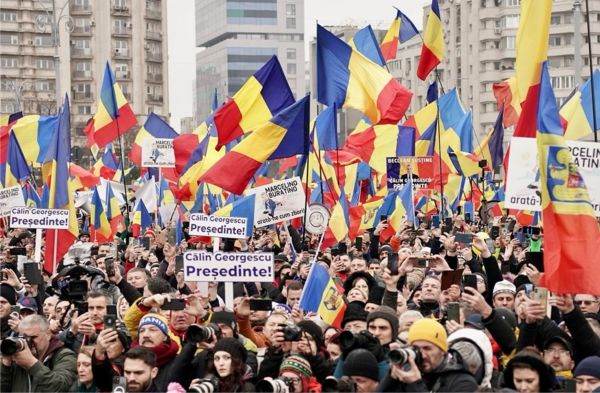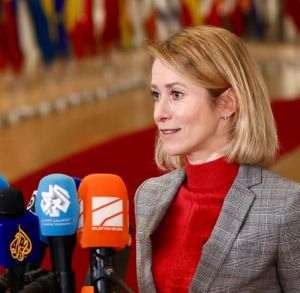Today marks one year since Călin Georgescu won the first round of the presidential elections on November 24, 2024, obtaining 2,120,401 votes, or 22.94% of the total votes cast, a result that shook the Romanian political system and astonished the international press. What had seemed impossible until then had become a reality: an independent candidate, marginal in the polls until two months before the election, had surpassed the candidates of the traditional parties and had established himself at the forefront of the presidential race.
Two weeks later, on December 6, 2024, the Constitutional Court annulled the entire electoral process, citing evidence and indications of illegal financing, massive manipulation in the online environment, including networks of accounts that artificially amplified Călin Georgescu's notoriety, and external interference, especially Russian. The decision came during the second round and produced an unprecedented institutional shock in the last 30 years.
In this context, the BURSA newspaper offers you today a broad analysis of what the international press called the "Georgescu phenomenon", a textbook case of political escalation in an already tense society.
• Romania, before Călin Georgescu
In 2024, civil society in our country was ready to be fractured. The cost of living had increased aggressively, dependence on food and energy imports was structural, the exodus of young people was accelerating, and trust in parties and public institutions was collapsing to its lowest levels. The pandemic, the war in Ukraine, and global polarization had amplified the feeling of a vulnerable country, led from the outside.
In addition, Călin Georgescu's rise was also possible because the value of the traditional political class had dramatically decreased: the PSD and the PNL, in power for the past four years, offered a continuous spectacle of friction, hubris, obscure negotiations between leaders Nicolae Ciucă and Marcel Ciolacu, and contradictory economic measures that burdened both companies and citizens.
The chaotic alternation between increased taxes and fiscal relaxations, between unrealistic social promises and aggressive budget cuts, between announced and abandoned reforms completely eroded the trust of the electorate. For millions of Romanians with the right to vote, the PSD and the PNL had become not governing parties, but an alliance that functioned only for the interests of their own political clientele, not for the growth of the national economy. Therefore, the credibility gap left by the major parties created a huge vacuum, in which a character like Călin Georgescu could not only enter, but could dominate the electoral competition, supported by legal or even illegal means. It was not only Romania's problems that propelled him, but also the failure of the political class to offer a coherent, professional and credible alternative.
• The "TikTok Messiah” strongly divides Romanian society
Taking full advantage of this fragile terrain, Călin Georgescu took over social anxieties and transformed them into mobilizing narratives: the cost of living was not the result of the global economy, but of "party lies”; energy dependence was not strategic, but "slavery to imports”; the exodus of young people was not the result of economic gaps, but "the escape hatch of globalism”; and distrust in institutions became the justification for a "total reset of the system”.
His message, presented as one of peace and unity - "Romania regains control of its resources", "Romanians everywhere unite", "peace between East and West" - in reality functioned as a lens that refracted society into two irreconcilable blocs. "Us" versus "them", "true Romanians" versus "the sold-out elites", the sovereign people versus institutions infested with what Călin Georgescu would later identify as "political lice". The polarization thus produced fueled Georgescu's meteoric rise, consolidated by a massive informal campaign on TikTok, with no declared costs, which would later become the subject of investigations by the Prosecutor General's Office and cybersecurity experts. Moreover, at that time, Călin Georgescu was presented as a radical anti-system candidate, with sovereignist, anti-EU and pro-Russian positions, but also with sympathies for former political leaders Corneliu Zelea Codreanu and Ion Antonescu, sympathies that consolidated his label as "ultranationalist”, "pro-Russian”, with pro-legionary slippages, including in the Romanian press.
After the annulment of the elections, the conflict with state institutions intensified. Călin Georgescu accused an "election theft”, contested the CCR decision, asked the BEC and the AEP to "let democracy unfold” and "reverse the second round”, and his supporters transformed the annulment of the election into a crusade against the state. Immediately after the annulment of the presidential elections, the media and the think-tanks monitoring the election presented information in which Călin Georgescu is given as the main beneficiary of a massive promotion campaign on TikTok, without declared expenses, with networks of accounts that pushed his messages viral. Some analyses in the Romanian and European press have called him the "TikTok Messiah” and the "Georgescu phenomenon”, revealing how he managed to capitalize on voters' frustration with the support given by the central authorities in Bucharest for Ukraine, with the increase in the cost of daily living and with the distrust in the classic parties. In response to these criticisms, Călin Georgescu has stated in several interviews that he wants a "neutral Romania” between the US and the EU, oriented towards "sovereignty” and the exploitation of its own resources, and that he is not interested in European funds: "I and the Romanian people have God, we are not interested in European funds”.
• Criminal case for plot against the constitutional order
The information declassified by the CSAT and SRI regarding foreign influence operations has deepened the rift, it has not clarified it. The Prosecutor General's Office opened investigations into the financing of Călin Georgescu's campaign, the digital infrastructure behind the promotion, connections with paramilitary structures and possible external influences, especially from the Russian Federation. Searches at Horaţiu Potra and members of his group - affiliated body and soul with Călin Georgescu - revealed money, gold and weapons, fueling the narrative of a phenomenon with invisible tentacles.
On February 26, 2025, prosecutors began criminal proceedings against Călin Georgescu, accusing him of violations of electoral legislation, supporting extremist groups, spreading false information and actions against the constitutional order.
In parallel, he filed his candidacy for the elections rescheduled for May 2025. The Central Electoral Bureau rejected it on March 7, 2025, which led to the transformation of the center of the Capital into a field of civil war between Călin Georgescu's supporters and the security forces, a battle that ended with the arrest of several people and the preparation of criminal cases. Georgescu and his supporters accused that in this case it would be an "abuse" and a "political execution" and spoke of the "corrupt system" and external influence, especially French. Later, on March 8, the Constitutional Court confirmed the rejection of Călin Georgescu's candidacy, reinforcing among his supporters the perception of a direct confrontation between the candidate and the state institutions.
Another aspect worth noting is the fact that during the period April-May 2025, his relationship with George Simion, the president of AUR, took a new shape. After in October-November 2024, Călin Georgescu had harshly attacked George Simion, calling him "other people's man", in the spring of 2025 he reevaluated him and called him "my younger protege". The term quickly disappeared, fueling speculation about a rift between the two.
After the end of the presidential electoral process in May 2025, Călin Georgescu announced on May 26 that he was withdrawing from politics in the context of the criminal cases and that he would remain a "passive observer", but leaving open the possibility of returning "if necessary". The judicial control imposed and extended every 60 days by the judicial authorities forced him to appear weekly at the Ilfov IPJ, but each appearance by Georgescu turned into a moment in which he publicly expressed his political opinions: "Romania is run by political lice who feed on people's fear”, "Justice is a stick to beat opponents with”, "My file is a copy of Donald Trump's”. Statements perfectly synchronized with the narrative of victimization, amplified online and transformed into the core of a new mobilization of Călin Georgescu's supporters.
Moreover, on July 17, the Permanent Electoral Authority announced the sanctioning of Călin Georgescu with a misdemeanor fine of 200,000 lei for irregularities in the elections canceled in December 2024, and the main party that supported him - AUR - was sanctioned for irregularities in last year's parliamentary and local elections with fines of 145,000 lei and the confiscation of an allocation of 13.6 million lei.
Later, on September 16, 2025 - when AUR had already advanced the idea of a new government to be led by Călin Georgescu as Prime Minister, Prosecutor General Alex Florenţa announced the indictment of Georgescu along with 21 other defendants for conspiracy against the constitutional order, organization of a criminal structure for financing and organizing the electoral campaign in the presidential elections and connections with foreign state entities (Russia, in particular) in the context of the elections canceled at the end of last year. The criminal case, also fueled by declassified documents, but also by searches that revealed a real military arsenal in the group led by Horaţiu Potra, became for the sympathizers by Călin Georgescu the symbol of the confrontation between the political phenomenon and the resistance of the state.
• Romania, after Călin Georgescu
Through the lens of the above, it can be said that, one year after the first round of the 2024 presidential elections, Romania is still living in the shadow of an episode that brutally reconfigured politics, public discourse and the way in which state institutions function. The "Georgescu phenomenon” is no longer just a media notion, but a case study of the vulnerability of an electoral system that was pierced by a massive, decentralized online campaign, difficult to track financially and impossible to counter by traditional actors. The experience of the last year has shown how exposed the electorate is to digital manipulation, how quickly a candidate without a party infrastructure can grow and how easily a slide in public discourse towards radical themes can occur: tough sovereignty, pro-Russian sympathies, anti-Europeanism, challenging NATO, extreme anti-elitism.
For the first time since 1989, institutions such as the CCR, BEC, CSAT or the Prosecutor General's Office were forced to intervene simultaneously in the electoral area, navigating between the responsibility of defending the constitutional order and constant accusations of political censorship. The cancellation of the election, the opening of investigations, the investigation of digital networks and the limitation of the effects of an unconventional campaign showed a Romania caught between two worlds: the legal-institutional one and that of street pressure and social media, where the narrative of victimization had a stronger echo than any official statement. In the fall of 2025, the analysis of the phenomenon reaches a deeper level: its impact did not stop at the cancellation of the elections, but fundamentally transformed Romania's positioning in relation to external partners. The fact that a candidate with pro-Moscow sympathies won the first round and remained a favorite in the polls until disqualification raised serious questions at the diplomatic and strategic level, forcing the EU and NATO to reassess Romania's resilience to external influence and the vulnerability of the electorate to anti-Western messages. Domestically, mainstream parties were forced to radically rethink their online presence. The replicable and explosive "populist TikTok” model became a threat to the entire political architecture, and the PSD and the PNL began to import digital techniques from the radical parties' area in order not to be caught on the wrong foot. At the same time, the radical right is undergoing an accelerated process of reconfiguration. AUR and other political groups are trying to capitalize on the symbolic legacy left by Georgescu - anti-system rhetoric, sovereignist discourse, distrust in state institutions - without directly taking on his toxic baggage, marked by accusations of extremism, criminal investigations and controversial connections. The paradoxical effect is that the radical scene is strengthening, not fracturing, and harsh messages are becoming normalized in the public debate.
A year later, what remains is the image of a profoundly transformed Romania: economic and structural problems have remained the same or have been amplified, but society is much more polarized, institutions more tense, and trust in the electoral process much more fragile. The "Georgescu phenomenon” has not passed, but has become a benchmark for analysis and a warning about how quickly a democracy can be destabilized when its vulnerabilities are simultaneously exploited in the streets, in institutions, and in the digital environment.

















































